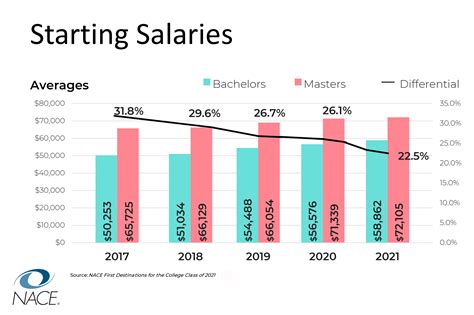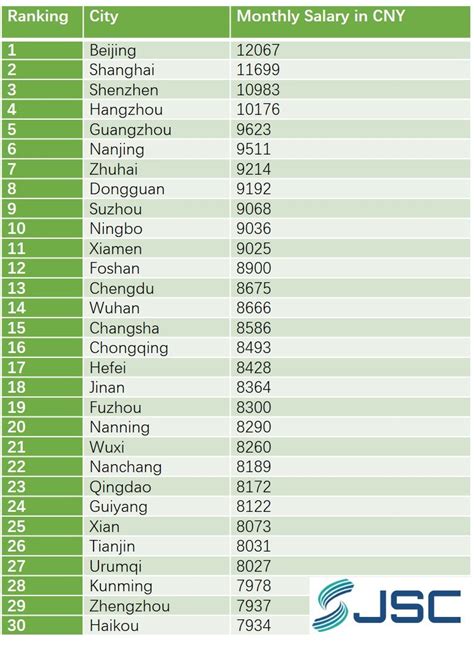Thinking about a career move to one of the world's most dynamic and fastest-growing economies? Understanding the salary landscape in China is a critical first step. While headline figures can be enticing, the reality of compensation in China is a complex tapestry woven from factors like location, industry, and experience.
An average salary in China can range significantly, from approximately ¥70,000 CNY per year for entry-level roles in smaller cities to well over ¥400,000 CNY per year for senior professionals in high-demand sectors in major metropolitan hubs. This guide will break down the numbers, explore the key factors influencing your earning potential, and provide a clear picture of what to expect.
What Does the "Average Salary" Figure Represent?

Before diving into the numbers, it's crucial to understand what "average salary" means in the context of China. Official figures, typically released by China's National Bureau of Statistics (NBS), represent the statistical mean. However, due to significant income disparity, this number can be skewed by a small number of very high earners.
Therefore, when analyzing salary data for China, it's important to consider:
- Urban vs. Rural Divide: Official statistics primarily focus on urban employees, whose wages are substantially higher than those in rural areas.
- Average vs. Median: The median salary—the midpoint of all salaries—is often a more accurate representation of what a typical worker earns. Unfortunately, median data is less commonly reported.
- Gross vs. Net: Salary figures are almost always quoted as gross (before tax and social security contributions). Individual income tax and mandatory contributions can reduce take-home pay by 15-30% or more, depending on the income level.
This article will navigate these nuances to provide you with a practical and realistic understanding of earning potential in the country.
Average Salary in China

The most authoritative source for national salary data is China's National Bureau of Statistics (NBS). According to their latest available data for 2022, the average annual salary for urban employees was as follows:
- Urban Non-Private Sector Employees: ¥114,029 CNY (approximately $15,840 USD)
- Urban Private Sector Employees: ¥65,237 CNY (approximately $9,060 USD)
*(Source: National Bureau of Statistics of China, May 2023. USD conversion based on an exchange rate of 1 USD ≈ 7.2 CNY)*
This significant difference highlights the pay gap between state-affiliated or state-owned enterprises (SOEs) and the private sector.
However, these national averages don't tell the whole story. For skilled professionals, especially those targeted by multinational corporations, the figures are considerably higher. Data from professional recruitment agencies and salary aggregators provide a more relevant picture for a professional audience.
For example, Salary Explorer, which aggregates user-submitted data, reports a median salary in China of roughly ¥29,000 CNY per month (¥348,000 per year). This figure often reflects the earnings of professionals in major cities. A typical salary range for a skilled professional might look like this:
- Entry-Level Professional (1-2 years experience): ¥96,000 - ¥150,000 CNY annually
- Mid-Career Professional (5-10 years experience): ¥200,000 - ¥350,000 CNY annually
- Senior/Executive Level (10+ years experience): ¥400,000 - ¥800,000+ CNY annually
Key Factors That Influence Salary

Your personal earning potential will be determined by a combination of factors. Understanding these levers is key to maximizing your compensation.
### Geographic Location
This is arguably the single most important factor in China. There is a well-defined tier system for cities, which directly correlates with salary levels and cost of living.
- Tier 1 Cities (Beijing, Shanghai, Shenzhen, Guangzhou): These are the economic powerhouses. Salaries here are the highest in the country, often 50-100% higher than in other cities. Competition is fierce, but opportunities in tech, finance, and international business are abundant.
- Tier 2 Cities (Hangzhou, Nanjing, Chengdu, Chongqing): These are large, rapidly developing provincial capitals. They offer a lower cost of living than Tier 1 cities but still have strong economies and growing demand for skilled professionals, particularly in tech (like Hangzhou) and manufacturing.
- Tier 3 & 4 Cities: These are smaller cities where salaries are significantly lower and career opportunities for high-skilled international talent are more limited, often centered around specific local industries or manufacturing plants.
### Years of Experience
Experience is universally valued, and China is no exception. Career progression brings a steep increase in earning potential.
- Entry-Level (0-2 years): Graduates and early-career professionals command the lowest salaries as they build foundational skills.
- Mid-Career (3-8 years): Professionals with proven expertise and some management experience can see their salaries double or even triple from their starting point.
- Senior/Leadership (8+ years): Senior managers, directors, and executives with extensive experience are highly sought after and can command top-tier salaries, often including significant bonuses and stock options.
### Company Type
The type of company you work for dramatically impacts compensation and work culture.
- Multinational Corporations (MNCs): Foreign-invested companies typically offer the highest salaries and most comprehensive benefits packages (including international health insurance) to attract top talent. They often have a more Western-style work culture.
- Private Domestic Tech Giants (e.g., Tencent, Alibaba, ByteDance): These companies are highly competitive and offer very attractive salaries and stock options, often rivaling or exceeding MNCs, particularly in the tech sector. The work culture can be famously demanding (e.g., the "996" culture).
- State-Owned Enterprises (SOEs): These government-backed companies offer moderate base salaries but provide excellent job security, generous social benefits, and a better work-life balance.
### Area of Specialization (Industry)
As in any major economy, some industries pay significantly more than others. The highest-paying sectors in China currently are:
- Technology/IT: Software engineers, data scientists, AI/ML specialists, and cybersecurity experts are in extremely high demand.
- Financial Services: Roles in investment banking, asset management, and fintech in cities like Shanghai and Shenzhen command some of the highest salaries in the country.
- Professional Services: Management consulting, legal services, and high-level corporate finance roles are very lucrative.
- Pharmaceuticals & Healthcare: With a growing and aging population, R&D and senior commercial roles in the life sciences sector are increasingly well-compensated.
### Level of Education
Higher education, especially from a prestigious university, provides a distinct advantage. An advanced degree not only opens doors to more specialized roles but also significantly boosts starting salaries and long-term earning potential. A Master's or PhD, particularly from a well-regarded international university, is highly valued by both MNCs and top domestic firms.
Job Outlook

While the U.S. Bureau of Labor Statistics (BLS) does not provide outlooks for other countries, economic forecasts from global institutions can shed light on the employment landscape. The World Bank and International Monetary Fund (IMF) project continued, albeit moderating, economic growth for China.
The government's strategic focus is on transitioning from heavy manufacturing to a "high-quality," technology-driven economy. This means the job outlook is exceptionally strong in fields related to:
- Digital Technology: Artificial Intelligence, 5G, and the Internet of Things (IoT).
- Green Energy: Electric vehicles (EVs), renewable energy, and sustainable technology.
- Advanced Manufacturing: Robotics, aerospace, and high-tech industrial components.
Conversely, roles in traditional, labor-intensive industries may see slower growth. The overall outlook for skilled, educated, and experienced professionals in China's target growth sectors remains highly positive.
Conclusion

Navigating the Chinese job market is a rewarding endeavor for those who do their research. While the national "average salary" provides a baseline, it's a metric that hides immense variation.
Here are the key takeaways for any professional considering a career in China:
- Aim for Top Tiers: Your highest earning potential lies in Tier 1 cities like Shanghai, Beijing, and Shenzhen.
- Specialize in High-Growth Fields: Technology, finance, and advanced manufacturing are where the most lucrative opportunities are.
- Target the Right Employer: Multinational corporations and leading domestic tech firms offer the most competitive compensation packages.
- Leverage Your Experience: Your salary will grow substantially as you gain valuable, China-specific experience and move into leadership roles.
For the right candidate with the right skills, China offers a unique opportunity to be at the forefront of global innovation while achieving significant financial and professional growth.
